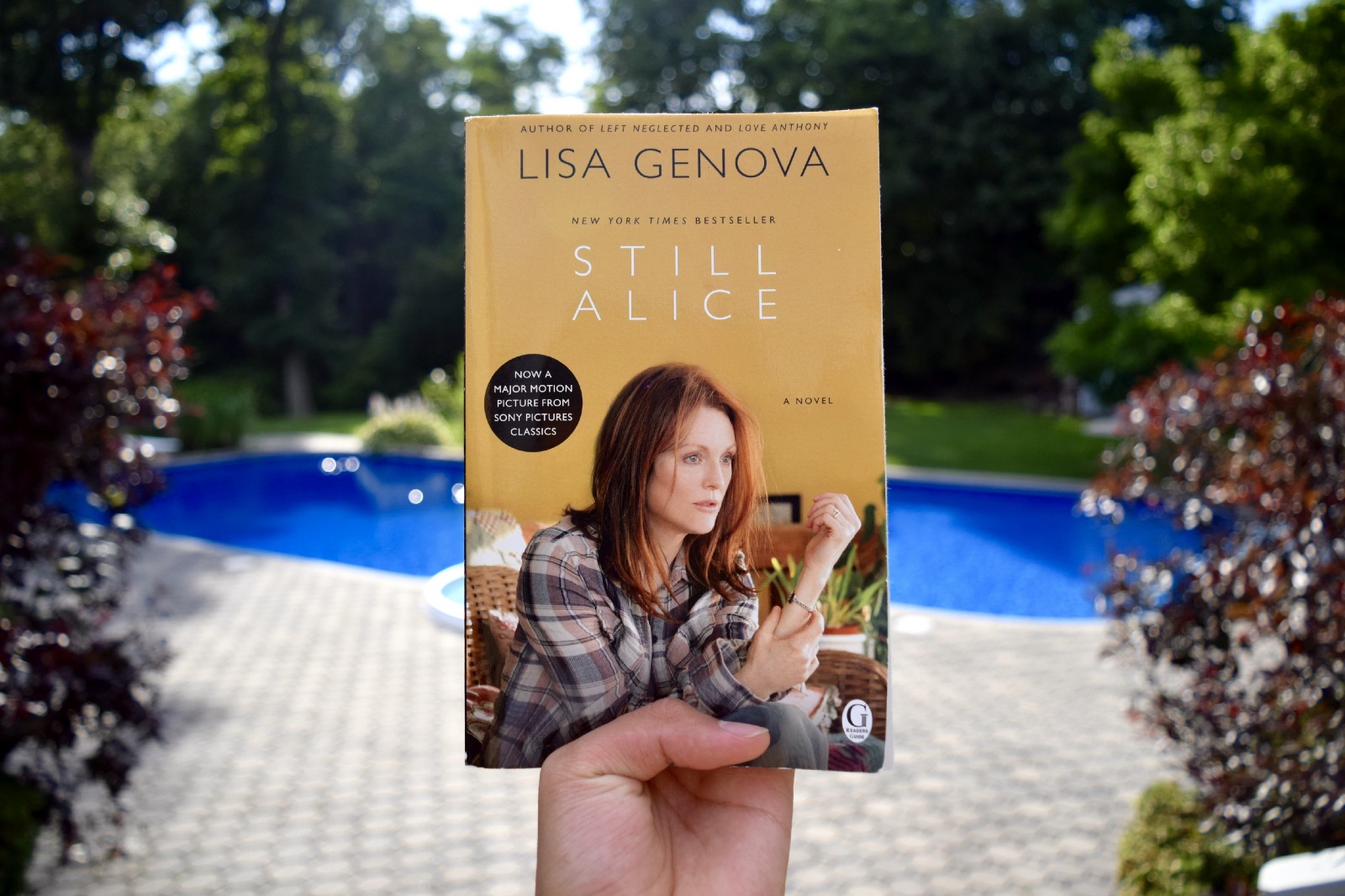July 14, 2017
THOUGHTS ON STILL ALICE
In which I discuss how my decision-making process changed after reading one of my favorite books, Still Alice by Lisa Genova.
My opinion is mine, and I can’t make it yours. However, I hope I can at least get you thinking about it.
Two years ago, I asked myself: what is the purpose of doing something if I do not remember it? Should I spend time with my friends one night over studying if after a year I am not going to remember the exact conversations and moments with my friends? What is the purpose of experiencing anything if I’m not learning or changing from it? I was not remembering and growing from some experiences because, without much thought, I chose to do and speak of things of little significance. So, I changed what I talked about and how I spent my time. I began learning and experiencing things in a new fuller way.
Sometimes, I thought of myself as a vessel filled with years of failures, successes, and experiences. I can carry thoughts and lessons realized from myself as well as from other people. Reading books became ways I could learn a snippet of everything mixed within someone–sort of transfer a bit of what is inside their vessel into mine.
Last summer, I read Still Alice by Lisa Genova. Alice, a Harvard professor whose life and identity is in academia and her family, is unexpectedly diagnosed with early-onset Alzheimer’s Disease. As a safe observer, I read how this incurable disease took hold of Alice’s life from the beginning to end. To an extent, my emotions were projections of the character’s, specifically Alice’s emotions. I read about Alice’s family’s struggle of support and understanding towards someone fighting her own battle with denial, frustration, and self-identity. All her work, achievements, friendships, family relationships, and experiences were slowly dissipating with her dying neurons. She was slowly losing all her memories and becoming a vessel for less as days passed. She was losing who she was.
At a conference on Alzheimer’s Disease care, Alice gave a speech in which she describes her new life with Alzheimer’s and asks her audience to treat Alzheimer’s patients differently. She shares,
“My yesterdays are disappearing, and my tomorrows are uncertain, so what do I live for? I live for each day. I live in the moment. Some tomorrow soon, I’ll forget that I stood before you and gave this speech. But just because I’ll forget it some tomorrow doesn’t mean that I didn’t live every second of it today. I will forget today, but that doesn’t mean that today doesn’t matter.”
Reading this prompted me to ask myself again: if I do not remember a moment, what is the use of living that moment? Immediately, I realized how selfish I was for the past two years. I only thought about whether the experience would positively impact me and did not consider other people could cherish an experience I brushed off. I should consider how to maximize how others and I will be affected by our shared experience.
Alice could not live the life she wanted to because she lost part of her life to Alzheimer’s. Even though I am not in a similar circumstance in terms of my health, my life still is not infinite. Days end, weeks end, and I will eventually end. With death in the back of my mind, there is more reason to live in the present while considering the future.
I had to read about someone’s life ticking away at a faster rate than mine to realize my life could suddenly tick faster as well. My time is finite, and it is important to carefully choose what I want to spend my time on so I can be in love with what is in my vessel at the end of it all.
“This is your world. It’s full of more potential for pleasure, love, glory, beauty, and bliss that can be comprehended. It even surprises you with misfortune so you can experience the full range of your explosive emotions, and so the good things are that much sweeter. Even better, nothing great comes easily. That would be hopelessly boring. You have thrilling hurdles to overcome at every corner in order to achieve greatness in this life.”
